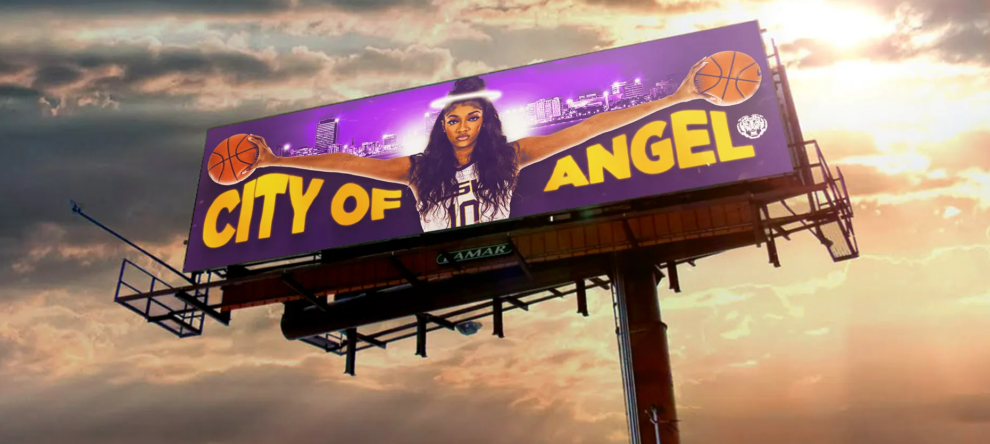A common question is, “What is an NIL deal?” The NIL stands for Name, Image, and Likeness and is relevant to collegiate-level athletes. These deals are made between student-athletes at a university and a third party, such as a brand. The athlete receives a payment or compensation in exchange for this third party’s use of their Name, Image, and Likeness. Brands can gain attention and widespread popularity by using young athletes to represent them. These deals typically happen through the National College Athletic Association (NCAA) league. Students are continuously prohibited from receiving direct payment from their college, yet NCAA legislation permits college athletes to earn payment from their NIL. Some of your favorite athletes may be involved in an NlL deal currently. Bronny James (Lebron James’s Son), Livvy Dunne (An LSU gymnast), and Angel Reese (a LSU women’s basketball player) are just some examples of household names that have become well-known due to these deals.
The origin of NIL comes from a class-action lawsuit made in the 2000s that sparked controversy surrounding paying college students. An alumni basketball player at UCLA, Ed O’Bannon, argued that college athletes should be paid for the use of their name. Not only did the NCAA owe over 45 million dollars, but this also began the discussion of student-athlete payment.
NIL deals were not immediately granted to all athletes, but as certain states began to change their legislation, more opportunities started to open up. As more and more states were amending their rules, the NCAA was forced to look at the topic and get involved. On the surface, young athletes getting paid seems like a fantastic matter. Young kids can get a head start on their careers and even make millions of dollars while also providing an incentive for students to graduate college. Finishing school also gives them more years to make money and push their name out into the world. Also, NIL can help promote small businesses and charities in need. Since most follow their favorite athletes on social media, they would be able to gain exposure to the companies that the athlete represents.
Although many of these options seem wonderful, many people dislike NIL and feel it negatively affects the athletes and the games. Data has shown that many of these athletes have produced disappointing on-field results, as brands generally seem less worried about performance and more focused on the athlete’s promotion of specific businesses. NIL can start to even change the dynamic of particular games. Some students will start to transfer schools for a chance at a better deal at a bigger school. This might be motivated by colleges violating the rules and paying a student to attend their school, drawing attention to the athlete’s name and the school behind them. Furthermore, this poses a risk for some schools as they lose players and the team’s drive is changed for the worse.
For some first-hand opinion, I interviewed a teacher who was a college athlete herself. Mrs. Seeger was a softball player at The University of Connecticut. During the time that she was a student-athlete, NIL deals were very illegal. Colleges had very strict rules about students receiving compensation. Although she often saw certain athletes get special special treatment, such as being driven in limousines on the way to events, the football team, who got more attention, also generally received better treatment. I then asked her what her opinion on the subject was, as it is a very debated matter. She said she feels it is unnecessary for student-athletes to receive compensation, especially since most of the best athletes are given scholarships and free education. Being a college athlete is not a job, and when kids are getting compensation along with a free education, it seems unrealistic that kids are making a career while still in college. Considering logistics, the NIL deals don’t have any requirements, so nothing could be required from the student, and they will still get money. Another result of having broad rules is that there is no salary cap. Brands can give whoever they want, whatever they want with no consequence. This can create unfairness between players. I then asked her to put herself in the shoes of the college athletes themselves, and to imagine that she was a student-athlete in today’s time. She explained how she wouldn’t reject the offer because money is money. To be earning at a young age is good in life, but she would still feel it was unfair and unnecessary. Another point that came up was if she would be sour towards a teammate if they were making copious amounts of money and she wasn’t. Her take was that she would solely feel upset if she was performing better than her teammate on the field and still making an earning for their name. In the end, she came to the conclusion that she generally dislikes the idea of NIL and feels that college kids making that amount of money is unnecessary. The broad rules of it open up so many doors, and it can get complicated. It can not only change the game off the field but also on the field.






